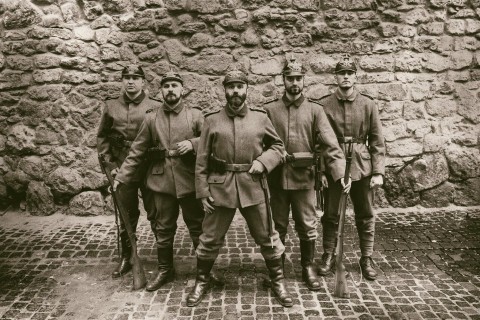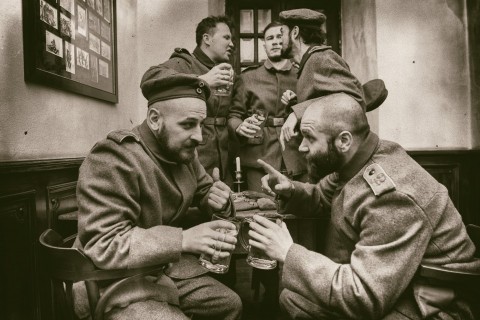1914’s leader: "Our music is not about all these ridiculous attributes of black metal"
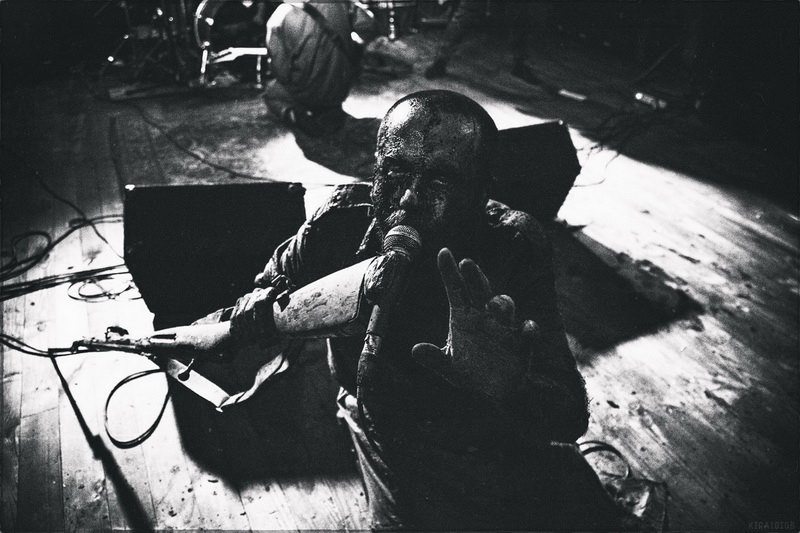
At the beginning of the year, the Lviv-based metallists 1914’s second studio album has suddenly disappeared from popular streaming services. As it turned out, the band planned to re-release their newest record in May 2019, but this time via new record label Napalm Records. In support of this re-release, the musicians also presented their first music video.
Noizr Zine interviewed 1914’s frontman Dmytro Kumar, asking him about the relationship with the Austrian metal label, and how it’s affected the band. The musician also revealed plans for making more video content, the importance of tradition, the creative approach of 1914, as well as his hobby, archaeological excavation, and making music outside of his main project.
In May you re-released your second studio album "The Blind Leading The Blind" via Napalm Records. Tell us how the relationship with such a well-known label began and how did they affect the life of the band? I assume that being brought on board by a larger label has bolstered your confidence?
Dmytro: It was easy enough — they heard our album and sent us a proposal for cooperation. At that moment we already had negotiations with two other big labels about similar partnerships and signing contracts, but the communication with them was not that active. We could wait for an answer for about a week. And, to tell the truth, the conditions, that were offered by Napalm, were more interesting than those other two proposals. They immediately wrote back to us, calling us whenever there was such a need to explain to us all the necessary details. Therefore, the cooperation began somehow by itself, simply and without headaches. As for our confidence, it seems so, yes. When you feel that a huge label stands behind you, you know when you release your next albums that the label will provide decent promotion, they will help you financially; many more people will hear you now — it helps you a lot with the issues and problems that musicians (especially in Ukraine) face. Well, of course, the volume and the quality of concerts are constantly growing and it pleases us very much.
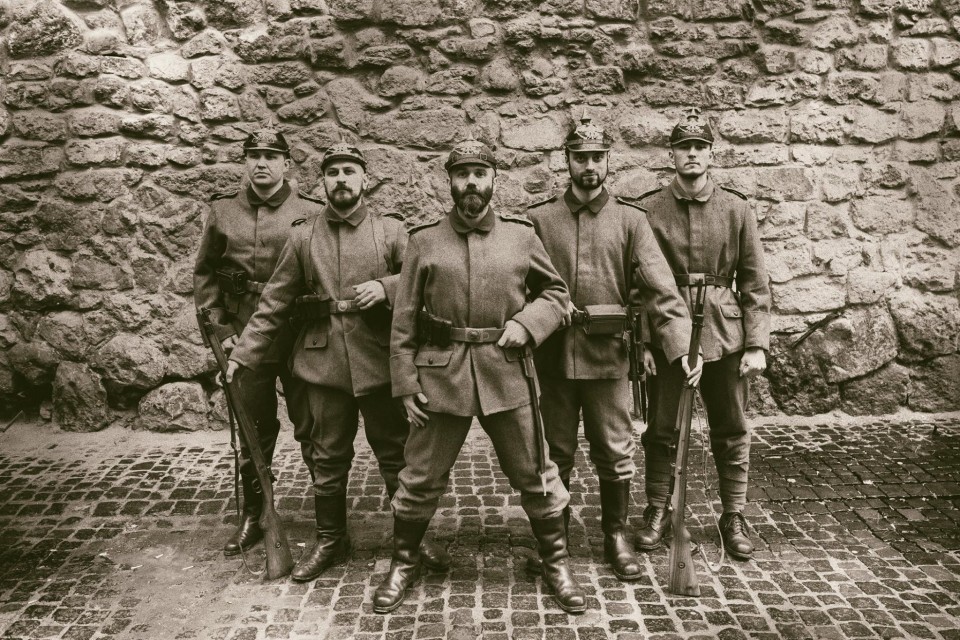
With the release of the new album the previous band members, named after the British soldiers, "died". Instead of them, you have now the "Germans", and then you have plans for "French" or "Turks". Tell us about this tradition in 1914. How do you choose the names, and do they really belong to some real soldiers?
Dmytro: Honestly, the Americans were killed. The first line up of 1914 was entirely taken from the AEF (American Expeditionary Forces) of the real regiments that took part in battles in France and died there. So all the ranks, companies and divisions are real and they were in the structure of the AEF. But our names are more of an allusion to the Americanized names of the real ones, kinda transcription; although they are not so fictional. I tried to build our names around the real soldiers, but not just by stealing their names, and to make a light reference to them. For instance, our bassist Armen was Pvt. Armen Bleckley (K Company's 160th Infantry Regiment) — it is a fairly ambiguous reference to its historic prototype Erwin R. Bleckley, an American military man that was killed in October of 1918 during the Meuse-Argonne Offensive in France.
After the first album the "American" crew has died and for a short period of time (while working on the split with Americans Minenwerfer) they were replenished by "Austrians". However, the "Germans" appeared on the new album. The entire staff (especially taking into account the regular changes in the band) was full of real divisions and titles from the Kaiser’s Army featuring the transcription of our real names. We plan to continue this tradition, and the next album may come out with "French", "British" or "Turks" — there were a lot of warring parties, so we have some variants to choose.
"In the future, we are going to make more videos. And obviously, it won't be a piss for pussies in the Sabaton’s style."
Your first video "C'est Mon Dernier Pigeon" came out this May. Why did you decide to use this track from the new album with a video? Are you satisfied with the end product?
Dmytro: Why this track? Very simple. It's a short, evil, and furious thing. It’s about murder because of despair, about heroism, desolation, and hope. About hope in the form of the last pigeon who brought the news that the soldiers can no longer hold the fort and wait for help. The pigeon brought the news — but help did not come. Hope is often a ghostly thing, especially in the realities of such mayhem. We wanted to show that exact mayhem, to give a little bit of that time’s atmosphere, of those battles. But the historical movie for 10-12 minutes with large-scale battles is still far beyond our strength. Yet!
Yeah, we are satisfied with the work. Of course one can always do better, but with our limited budget and challenges of this country for historical weapons, suits, and other stuff — everything turned out pretty cool.
Today, in the era of video content, new bands often try to "come in" with a pair of spectacular videos. In the case of 1914, this is the first video in the five-year existence of the band. Why now? Is this a question of opportunity or probably you had some certain thoughts on such kind of content? Are you planning to make more videos in the future?
Dmytro: Roughly speaking, we are playing music about the Great War. All of the tracks are about battles, great battles, the fate of the soldiers in it and so on. To make such videos look cool, scalable and breath-taking, with hundreds of people running in the frame, with explosions, technology — it’s too difficult financially, for now. To shoot just mudded musicians who play their instruments at some factories, swamps or elsewhere — who needs it? Our music is not about musicians, not about guitars, not about corpse paints, spikes, leather pants, inverted crosses or all these ridiculous attributes of black metal. No chance to shoot large-scale battles in the format of a sharp film — wait, it's better not to shoot at all. In the future, we are going to make more videos. And obviously, it won't be a piss for pussies in the Sabaton’s style.
Dmytro, now you have a lot of concerts abroad, you combine your work in the band with a 'normal' job and a family. Is there time for your hobby — history and archeology?
Dmytro: Honestly, there is actually no time left. And it stresses me out because for me it is an important component: firstly it’s an inspiration for creativity, and secondly, just a hobby in which I have followed for 13 years, which helps me to rest mentally from all the world, work, and so on. And still, I need to read new books, to update the facts in my head, the descriptions of the battles, etc. Therefore, there are such moments when it comes to choosing priorities. And here is such a concept that "normal work" loses absolutely. Yeah, it can be not very cool financially, but I can devote myself entirely to my family, music, my hobby. Everything that inspires and supports me.
Tell us more about your hobby — the search for military artifacts. How do you think, what is the most valuable thing you found in the field of hostilities?
Dmytro: The most valuable things are emotions. Memories, strong emotions, inspiration. I don’t want to measure the artifacts I found by money, but when I take any of them, I remember the story that is associated with it. As well as where I found that artifact; who was with me, the feelings that I had, friends nearby. Some of them are no longer alive. That's why it's not just a side-venture for me; I'm trying to touch that page, those events, to be in the place where that soldier's life was cut off, to find things that were with him in his last minutes. If I find the remnants of a soldier — maybe it sounds weird — but I talk to them. Kinda last small dialogue. Why is he here? How did he die? Who was waiting for him at home? Such a small Shakespearean scene in my head, but in general, if we talk about interesting finds; once I found the remnants of a mammoth and took his remnants home. One day I’ll excavate it completely with my daughter. And also the tools of the work of Neanderthals. Are they valuable?
What do you think about chances to earn money only with your music one day? Is it possible, what do you think?
Dmytro: I answered a bit this question above. Yeah, I have such plans. To earn money only through music, with something personal. I want to start writing books finally (to have time for this, since I have a lot of ideas). I don’t want to live the rest of my life (how long it will be) in the IT company office. Somehow like this.
In 2017, during one of your interviews, you’ve mentioned the work outside the band. You even admitted that you can probably write something acoustically. So do you write music other than for 1914? And if so, what are you planning to do with those songs?
Dmytro: I hate "Russian rock" or "Ukrainian rock" — so it will be better not to write anything acoustically, in case it turns out to be some kind of Ukrainian rock shit. Besides 1914, I do write, and not just music, but also stories and novels. However, the further I go, the less time I have. I also have several thoughts about implementing those works, there is a couple of things worthy of attention, in particular, some songs for children. Sometime I’ll record them. I also really want to finish and release, recorded, but not yet released album of my old stoner doom project Johnny B Gut.
Order "The Blind Leading The Blind" via Napalm Records. Head to this location to read Noizr Zine's review of the album.
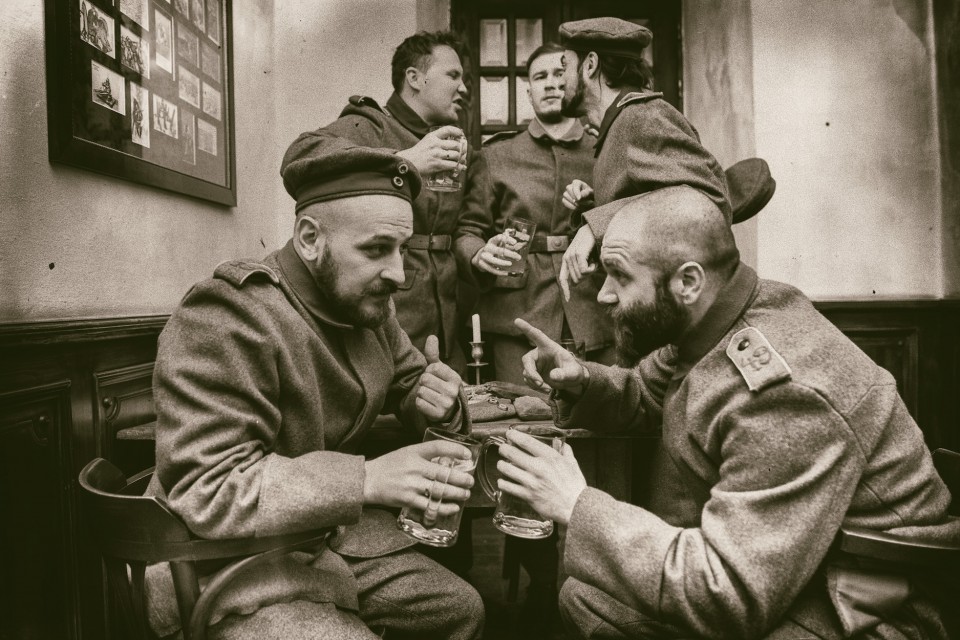
Interviewed by Yurii Somov
Edited by Dan Thaumitan
Noizr Zine thanks Napalm Records and Lisa Pavlova for help in organizing an interview
